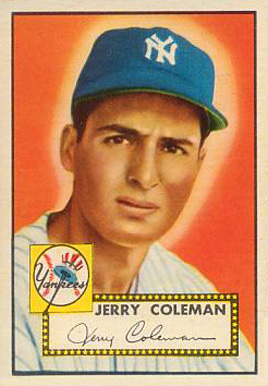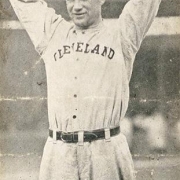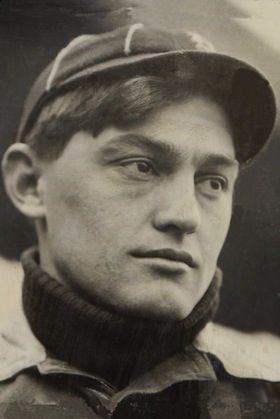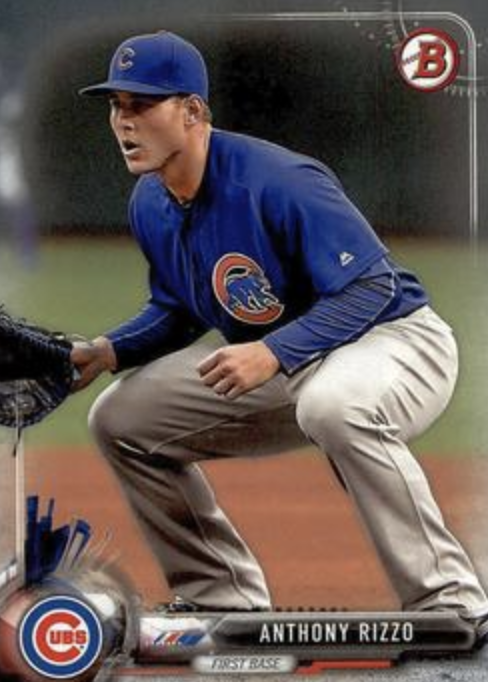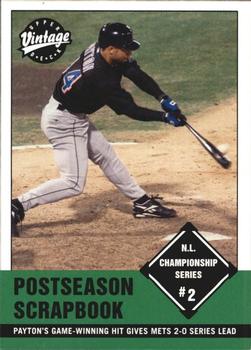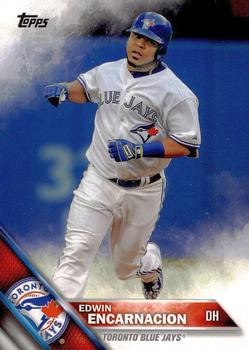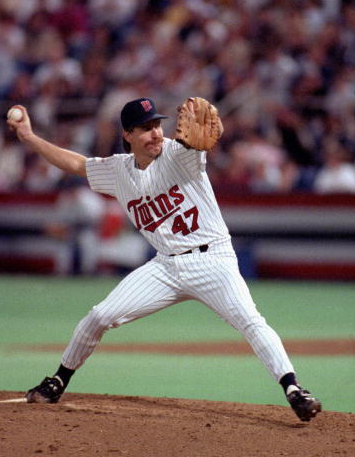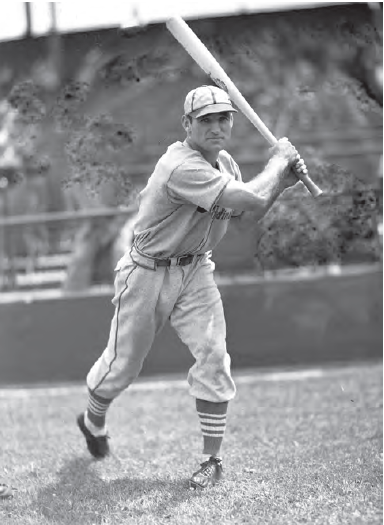October 12, 1980: Phillies rally to clinch NL pennant in 10 innings at Astrodome
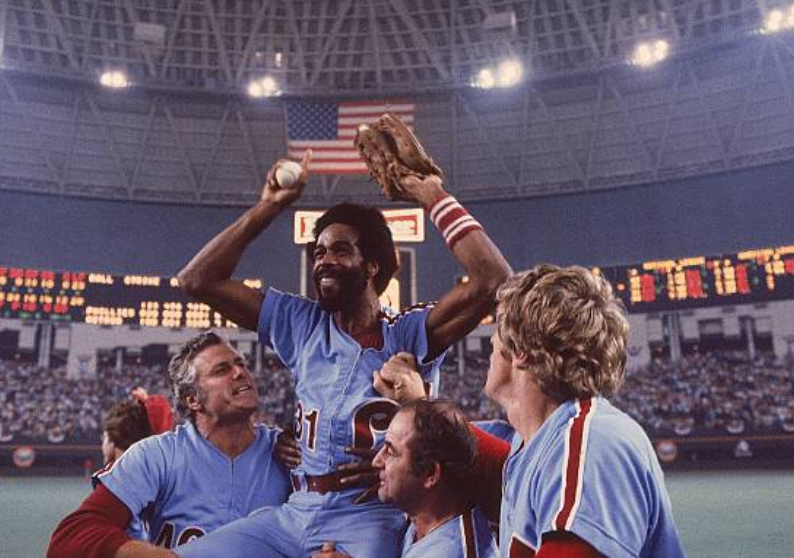
In spite of the previous night’s 5-3 loss in 10 innings, the Houston Astros were confident of victory as they prepared to face the Philadelphia Phillies on October 12 in the “winner-take-all” Game Five of the 1980 NLCS. In addition to being a battle-tested team that had already survived a one-game playoff with the Los Angeles Dodgers for the NL West Division title, they had won one of two games in Philadelphia and were certain that they could prevail over the Phillies in the Astrodome. The 44,802 fans in attendance shared the Astros’ optimism, especially since the team’s million-dollar free agent acquisition, strikeout master Nolan Ryan, was starting against rookie Marty Bystrom.
Bystrom had joined the Phillies on September 1 and had posted a 5-0 record with a 1.50 ERA that earned him the National League’s Pitcher of the Month award. Ordinarily, Bystrom would not have been eligible for postseason play because he was not on the club’s roster by the cutoff date of August 31; however, when the Phillies lost starter Nino Espinosa to injury, they petitioned Commissioner Bowie Kuhn and NL President Chub Feeney to allow them to add Bystrom to their postseason roster. Approval had been granted on October 7, the day of Game One of the NLCS, and now the Phillies’ World Series hopes rested on the 22-year-old rookie’s shoulders.
After Ryan set the Phillies down in order in the first inning, the Astros scored first for the fifth time in five games. Terry Puhl led off with a single, stole second base after Enos Cabell flied out, and advanced to third on Joe Morgan’s fly ball. The Astros went out in front 1-0 when Jose Cruz doubled to bring Puhl home. The lead was short-lived, though, as the Phillies took a 2-1 advantage in the second inning on Bob Boone’s single that drove in Manny Trillo and Garry Maddox.
The Astros’ attempts to tie the game resulted twice in a Houston runner being thrown out at home plate. In the bottom of the second inning, Luis Pujols drew a one-out walk and attempted to lumber home on Craig Reynolds’ double to right field, but he was gunned down on a perfect relay throw from the second baseman, Trillo. Reynolds advanced to third base on the throw home but was stranded there when Ryan grounded out to end the inning.
In the bottom of the fifth, Cabell notched a one-out single, advanced to second on Morgan’s grounder, and attempted to score when Trillo threw Cruz’s groundball wide of first base. Pete Rose, the Phillies’ first baseman, who was a veteran of four World Series with Cincinnati’s Big Red Machine, had the savvy to rifle the ball home to Boone, who applied the tag to Cabell and stymied another Astros scoring attempt.
Ryan continued to hold the Phillies’ bats in check, and the Astros tied the game in the bottom of the sixth. Denny Walling led off with a liner to left field that Greg Luzinski dropped for a two-base error. Two batters later, Alan Ashby pinch-hit for Pujols and singled to drive in Walling, ending Bystrom’s night. Warren Brusstar entered in relief and brought a quick conclusion to the inning by inducing fly balls from Reynolds and Ryan.
Larry Christenson took the mound for the Phillies in the bottom of the seventh inning and got into a predicament that threatened to blow the game open for the Astros. Puhl led off with a single, Cruz drew a two-out walk, and Walling singled home the go-ahead run. Art Howe was at bat when Christenson uncorked a wild pitch that allowed Cruz to score. Phillies manager Dallas Green had seen enough and brought reliever Ron Reed into the game, but Howe tripled off Reed to give the Astros a 5-2 lead that seemed to seal Philadelphia’s fate, given that Ryan had allowed only five hits and had struck out eight batters in his first seven innings of work.
The events in the top of the eighth were best summarized by Puhl when he said after the game, “Everybody thought we were a team of destiny. They were wrong. The Phillies were a team of destiny in this series.”1 Larry Bowa led off the inning innocently enough with a looping single to center field. Boone followed with what appeared to be an easy double-play grounder. As fate would have it, the ball went behind Ryan and deflected off his glove, and both runners were safe. Astros manager Bill Virdon later said of Boone’s hit, “That was the key to the whole game.”2 After Greg Gross tapped a textbook bunt down the third-base line to load the bases, Rose worked a walk from Ryan that narrowed the Astros’ margin to 5-3.
Bullpen ace Joe Sambito relieved Ryan and faced Keith Moreland, who hit a fielder’s choice grounder that forced Rose at second base but allowed Boone to score. Green and Virdon now engaged in a managerial chess match as Ramon Aviles ran for Moreland and Rafael Landestoy replaced Morgan as the Astros’ second baseman, while Ken Forsch came in to pitch. Forsch gave up a game-tying single to Del Unser and a triple to Trillo, which scored Aviles and Unser and gave the Phillies a 7-5 lead that shocked the Astrodome crowd.
The Astros proved to be resilient and immediately reinvigorated their fans by striking back in the bottom of the eighth. In a seesaw game that was part of a seesaw series, Landestoy and Cruz drove in runs against Tug McGraw (who pitched in all five games of the series) to once again tie the game, 7-7. After Houston’s Frank LaCorte and Philadelphia’s Dick Ruthven each pitched a scoreless ninth, the two teams headed into extra innings for the fourth consecutive game.
The Phillies struck in the top of the 10th behind doubles by Unser and Maddox that gave them a one-run lead. Maddox, whose hit drove in the game-winning run, recalled that LaCorte had shaken off Ashby before throwing him the first-pitch fastball that he lined to center field. He affirmed, “I was expecting a fastball, he’s a fastball pitcher” and declared, “No question this is the biggest thrill I’ve ever had in baseball.”3
The Astros finally had been subdued, and even Puhl — who had four hits in the game and 10 in the series to break Rose’s NLCS record for hits — could do no more. Ruthven retired pinch-hitter Danny Heep, Puhl, and Cabell in order in the bottom of the inning to preserve the Phillies’ 8-7 triumph. It was a gut-wrenching end to the Astros’ most successful season in their 19-year existence, and the players took it hard. Ryan, who had the game unravel on him in the eighth inning, said, “It’s the biggest loss I’ve ever had. It was more emotional than any game I’ve ever been in.”4
If there was any consolation for the Astros, it was the likelihood that the World Series would be unable to match the excitement of an NLCS about which The Sporting News declared, “There may never be another playoff like it!”5 The Astros sought exactly such solace as Sambito asserted, “You can’t convince me which is the better team. That’s about as even a series as you’ll ever find. Some guys may take it harder than others, but I’m proud to be an Astro.”6 Ashby concurred, saying, “Both teams deserve to play in the World Series. Unfortunately, only one can make it and that’s the Phillies.”7
The Phillies took time out from their champagne baths to acknowledge the Astros as a more than worthy adversary. Unser, who had scored the winning run in the decisive Game Five, waxed poetic, saying, “If you shine, it’s because somebody put a light on you. We shined in this series because the Astros put a light on us. They pushed us harder than anyone has ever pushed us.”8 Indeed, they pushed the Phillies into the World Series, where Philadelphia won its first world championship by defeating the Kansas City Royals in six games.
As for the Astros, they would have to endure two additional NLCS heartbreakers — including a 16-inning Game Six loss to the New York Mets in 1986 and a Game Seven loss to the St. Louis Cardinals in 2004 — before finally getting their first taste of World Series action in 2005.
This article appears in “Dome Sweet Dome: History and Highlights from 35 Years of the Houston Astrodome” (SABR, 2017), edited by Gregory H. Wolf. To read more articles from this book at the SABR Games Project, click here.
Photo caption
Garry Maddox is carried off the field after the Philadelphia Phillies clinched the National League pennant on October 12, 1980, at the Astrodome in Houston, Texas. (GETTY IMAGES)
Notes
1 Harry Shattuck, “Astros Proud of an ‘Almost’ Year,” The Sporting News, October 25, 1980: 27.
2 Joseph Durso, “Phillies Take Pennant With 8-7 Triumph,” New York Times, October 13, 1980.
3 “Phils Were ‘Just Tired of Losing,’ ” New York Times, October 13, 1980.
4 Lowell Reidenbaugh, “N.L. Playoff Gleanings,” The Sporting News, October 25, 1980, 16.
5 Lowell Reidenbaugh, “Chaos or Playoff, It’s Phils on Top,” The Sporting News, October 25, 1980: 15.
6 “Houston Astros 1980 NLCS,” astrosdaily.com/history/1980/, accessed July 3, 2015.
7 Shattuck, “Astros Proud of an ‘Almost’ Year.”
8 Ibid.
Additional Stats
Philadelphia Phillies 8
Houston Astros 7
10 innings
Game 5, NLCS
Astrodome
Houston, TX
Box Score + PBP:
Corrections? Additions?
If you can help us improve this game story, contact us.


